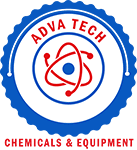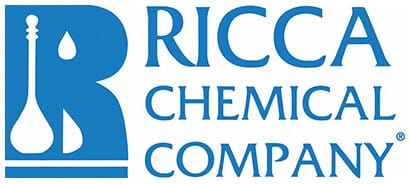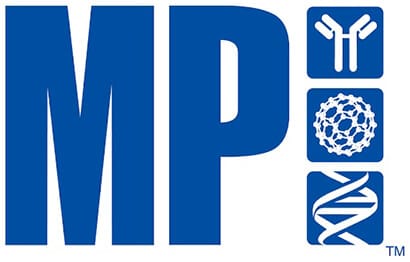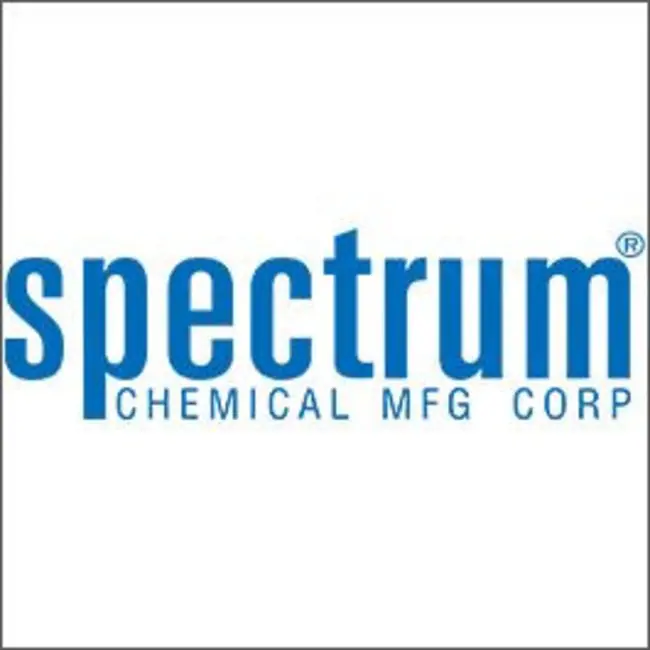Shop
Showing 77951–78000 of 163349 results
-
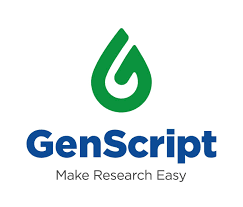
iFluor488-Protein L
$174.23 Add to cart View Product DetailsProtein L is a cell surface protein from Peptostreptoccocus magnus that binds to the variable light chains (kappa chain) of immunoglobulins without interfering with antigen binding. In contrast to IgG-binding proteins, such as protein A and protein G, which bind to the Fc region of immunoglobulins, protein L can be used for the detection and purification of mammalian kappa light chain antibodies of all classes. Since no part of the heavy chain is involved in the binding interaction, Protein L binds a wider range of antibody classes than Protein A or G. Protein L binds to representatives of all antibody classes, including IgG, IgM, IgA, IgE and IgD. Single chain variable fragments (scFv) and Fab fragments also bind to Protein L.
-

iFluor488-Protein L
$129.38 Add to cart View Product DetailsProtein L is a cell surface protein from Peptostreptoccocus magnus that binds to the variable light chains (kappa chain) of immunoglobulins without interfering with antigen binding. In contrast to IgG-binding proteins, such as protein A and protein G, which bind to the Fc region of immunoglobulins, protein L can be used for the detection and purification of mammalian kappa light chain antibodies of all classes. Since no part of the heavy chain is involved in the binding interaction, Protein L binds a wider range of antibody classes than Protein A or G. Protein L binds to representatives of all antibody classes, including IgG, IgM, IgA, IgE and IgD. Single chain variable fragments (scFv) and Fab fragments also bind to Protein L.
-

iFluor647-Protein L
$174.23 Add to cart View Product DetailsProtein L is a cell surface protein from Peptostreptoccocus magnus that binds to the variable light chains (kappa chain) of immunoglobulins without interfering with antigen binding. In contrast to IgG-binding proteins, such as protein A and protein G, which bind to the Fc region of immunoglobulins, protein L can be used for the detection and purification of mammalian kappa light chain antibodies of all classes. Since no part of the heavy chain is involved in the binding interaction, Protein L binds a wider range of antibody classes than Protein A or G. Protein L binds to representatives of all antibody classes, including IgG, IgM, IgA, IgE and IgD. Single chain variable fragments (scFv) and Fab fragments also bind to Protein L.
-

iFluor647-Protein L
$129.38 Add to cart View Product DetailsProtein L is a cell surface protein from Peptostreptoccocus magnus that binds to the variable light chains (kappa chain) of immunoglobulins without interfering with antigen binding. In contrast to IgG-binding proteins, such as protein A and protein G, which bind to the Fc region of immunoglobulins, protein L can be used for the detection and purification of mammalian kappa light chain antibodies of all classes. Since no part of the heavy chain is involved in the binding interaction, Protein L binds a wider range of antibody classes than Protein A or G. Protein L binds to representatives of all antibody classes, including IgG, IgM, IgA, IgE and IgD. Single chain variable fragments (scFv) and Fab fragments also bind to Protein L.
-

IFN gamma Rabbit mAb
$264.04 Add to cart View Product DetailsMonoclonal Antibodies
-

IFN gamma Rabbit mAb
$103.04 Add to cart View Product DetailsMonoclonal Antibodies
-

IFN gamma Rabbit mAb
$103.04 Add to cart View Product DetailsMonoclonal Antibodies
-

IFN gamma Rabbit mAb
$264.04 Add to cart View Product DetailsMonoclonal Antibodies
-
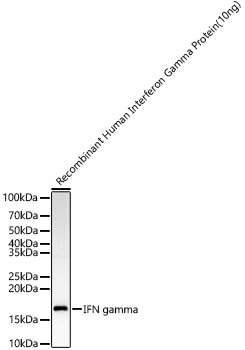
IFN gamma Rabbit pAb
$239.89 Add to cart View Product DetailsPolyclonal Antibodies
-

IFN gamma Rabbit pAb
$86.94 Add to cart View Product DetailsPolyclonal Antibodies
-

IFN gamma Rabbit pAb
$86.94 Add to cart View Product DetailsPolyclonal Antibodies
-

IFN gamma Rabbit pAb
$239.89 Add to cart View Product DetailsPolyclonal Antibodies
-

IFN gamma Rabbit PolymAb®
$264.04 Add to cart View Product DetailsMonoclonal Antibodies
-

IFN gamma Rabbit PolymAb®
$103.04 Add to cart View Product DetailsMonoclonal Antibodies
-

IFN-beta Rabbit mAb
$103.04 Add to cart View Product DetailsMonoclonal Antibodies
-
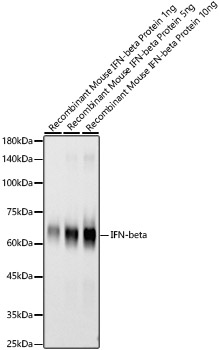
IFN-beta Rabbit mAb
$264.04 Add to cart View Product DetailsMonoclonal Antibodies
-

IFN-beta Rabbit mAb
$103.04 Add to cart View Product DetailsMonoclonal Antibodies
-

IFN-beta Rabbit mAb
$264.04 Add to cart View Product DetailsMonoclonal Antibodies
-

IFN-beta Rabbit pAb
$239.89 Add to cart View Product DetailsPolyclonal Antibodies
-

IFN-beta Rabbit pAb
$86.94 Add to cart View Product DetailsPolyclonal Antibodies
-

IFN-gamma Rabbit mAb
$103.04 Add to cart View Product DetailsMonoclonal Antibodies
-

IFN-gamma Rabbit mAb
$264.04 Add to cart View Product DetailsMonoclonal Antibodies
-
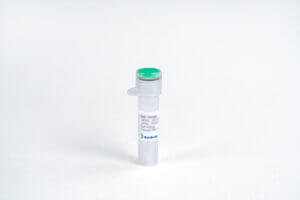
IFN-α 1b, Human
$133.69 Add to cart View Product DetailsAt least 23 different variants of IFN-alpha are known. The individual proteins have molecular masses between 19-26 kDa and consist of proteins with lengths of 156-166 and 172 amino acids. All IFN-alpha subtypes possess a common conserved sequence region between amino acid positions 115-151 while the amino-terminal ends are variable. Many IFN-alpha subtypes differ in their sequences at only one or two positions. Naturally occurring variants also include proteins truncated by 10 amino acids at the carboxy-terminal end.
-

IFN-α 1b, Human
$63.83 Add to cart View Product DetailsAt least 23 different variants of IFN-alpha are known. The individual proteins have molecular masses between 19-26 kDa and consist of proteins with lengths of 156-166 and 172 amino acids. All IFN-alpha subtypes possess a common conserved sequence region between amino acid positions 115-151 while the amino-terminal ends are variable. Many IFN-alpha subtypes differ in their sequences at only one or two positions. Naturally occurring variants also include proteins truncated by 10 amino acids at the carboxy-terminal end.
-
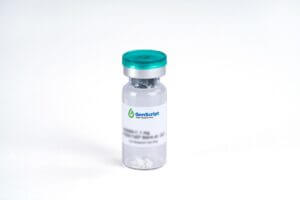
IFN-α 2a, Human
$405.38 Add to cart View Product DetailsInterferon-Alpha 2a (IFN-Alpha 2a), Human produced by leukocytes is a member of Interferon family. IFN-alpha is mainly involved in innate immune response against a broad range of viral infections. IFN-alpha 2 has three acid stable forms (a,b,c) signaling through IFNAR2. IFN-alpha 2a shares 99.4% , 98.8% aa sequence identity with IFN-alpha 2b and 2c respectively. IFN-alpha contains four highly conserved cysteine residues which form two disulfide bonds, one of which is necessary for biological activity.
-

IFN-α 2a, Human
$36.23 Add to cart View Product DetailsInterferon-Alpha 2a (IFN-Alpha 2a), Human produced by leukocytes is a member of Interferon family. IFN-alpha is mainly involved in innate immune response against a broad range of viral infections. IFN-alpha 2 has three acid stable forms (a,b,c) signaling through IFNAR2. IFN-alpha 2a shares 99.4% , 98.8% aa sequence identity with IFN-alpha 2b and 2c respectively. IFN-alpha contains four highly conserved cysteine residues which form two disulfide bonds, one of which is necessary for biological activity.
-

IFN-α 2a, Human
$68.14 Add to cart View Product DetailsInterferon-Alpha 2a (IFN-Alpha 2a), Human produced by leukocytes is a member of Interferon family. IFN-alpha is mainly involved in innate immune response against a broad range of viral infections. IFN-alpha 2 has three acid stable forms (a,b,c) signaling through IFNAR2. IFN-alpha 2a shares 99.4% , 98.8% aa sequence identity with IFN-alpha 2b and 2c respectively. IFN-alpha contains four highly conserved cysteine residues which form two disulfide bonds, one of which is necessary for biological activity.
-

IFN-α 2b, Human
$931.50 Add to cart View Product DetailsInterferon-Alpha 2b (IFN-Alpha 2b) produced by leukocytes is a member of Interferon family. IFN-alpha is mainly involved in innate immune response against a broad range of viral infections. IFN-alpha 2 has three acid stable forms (a,b,c) signaling through IFNAR2. IFN-alpha 2b shares 99.4% aa sequence identity with both IFN-alpha 2a and 2c. IFN-alpha contains four highly conserved cysteine residues which form two disulfide bonds, one of which is necessary for biological activity.
-

IFN-α 2b, Human
$34.50 Add to cart View Product DetailsInterferon-Alpha 2b (IFN-Alpha 2b) produced by leukocytes is a member of Interferon family. IFN-alpha is mainly involved in innate immune response against a broad range of viral infections. IFN-alpha 2 has three acid stable forms (a,b,c) signaling through IFNAR2. IFN-alpha 2b shares 99.4% aa sequence identity with both IFN-alpha 2a and 2c. IFN-alpha contains four highly conserved cysteine residues which form two disulfide bonds, one of which is necessary for biological activity.
-

IFN-α 2b, Human
$86.25 Add to cart View Product DetailsInterferon-Alpha 2b (IFN-Alpha 2b) produced by leukocytes is a member of Interferon family. IFN-alpha is mainly involved in innate immune response against a broad range of viral infections. IFN-alpha 2 has three acid stable forms (a,b,c) signaling through IFNAR2. IFN-alpha 2b shares 99.4% aa sequence identity with both IFN-alpha 2a and 2c. IFN-alpha contains four highly conserved cysteine residues which form two disulfide bonds, one of which is necessary for biological activity.
-

IFN-β, Human
$99.19 Add to cart View Product DetailsInterferon-beta (IFN-β), acting via STAT1 and STAT2, is known to upregulate and downregulate a wide variety of genes, most of which are involved in the antiviral immune response. It is a member of Type I IFNs, which include IFN-α, -β, τ, and –ω. IFN-β plays an important role in inducing non-specific resistance against a broad range of viral infections. It also affects cell proliferation and modulates immune responses.
-

IFN-β, Human
$43.13 Add to cart View Product DetailsInterferon-beta (IFN-β), acting via STAT1 and STAT2, is known to upregulate and downregulate a wide variety of genes, most of which are involved in the antiviral immune response. It is a member of Type I IFNs, which include IFN-α, -β, τ, and –ω. IFN-β plays an important role in inducing non-specific resistance against a broad range of viral infections. It also affects cell proliferation and modulates immune responses.
-

IFN-γ R II, Human
$63.83 Add to cart View Product DetailsIFN-gamma Receptor II, also known as IFNGR2 and IFNGT1, is a transmembrane protein belonging to the type II cytokine receptor family. IFNGR2 is a non-ligand-binding beta chain of the IFN-gamma receptor. It is an integral part of the IFN-gamma signaling transduction pathway and is likely to interact with GAF, JAK1 and JAK2. Defects in IFNGR2 are a cause of autosomal recessive Mendelian susceptibility to mycobacterial disease (MSMD), also known as familial disseminated atypical mycobacterial infection.
-

IFN-γ R II, Human
$133.69 Add to cart View Product DetailsIFN-gamma Receptor II, also known as IFNGR2 and IFNGT1, is a transmembrane protein belonging to the type II cytokine receptor family. IFNGR2 is a non-ligand-binding beta chain of the IFN-gamma receptor. It is an integral part of the IFN-gamma signaling transduction pathway and is likely to interact with GAF, JAK1 and JAK2. Defects in IFNGR2 are a cause of autosomal recessive Mendelian susceptibility to mycobacterial disease (MSMD), also known as familial disseminated atypical mycobacterial infection.
-

IFN-γ, Human
$487.31 Add to cart View Product DetailsHuman Interferon gamma (hIFN-γ) is amacrophage‐activating factor and the lone member of Interferon type II.The active form of IFN-γ is an antiparallel dimer that interacts with the receptor IFN-γR1 and sets off IFN-γ/JAK/STAT pathway. IFN-γ signaling does diverse biological functions primarily related to host defense and immune regulation, including antiviral and antibacterial defense, apoptosis, inflammation, and innate and acquired immunity. While IFN-γ–induced inflammatory cascade summons a variety of immune‐related cell types, such as macrophages, natural killer (NK) cells and cytotoxic T lymphocytes (CTLs), IFN-γ is also implicated in resistance to NK cell and CTL responses and in immune escape in a variety of cancers.
-

IFN-γ, Human
$34.50 Add to cart View Product DetailsHuman Interferon gamma (hIFN-γ) is amacrophage‐activating factor and the lone member of Interferon type II.The active form of IFN-γ is an antiparallel dimer that interacts with the receptor IFN-γR1 and sets off IFN-γ/JAK/STAT pathway. IFN-γ signaling does diverse biological functions primarily related to host defense and immune regulation, including antiviral and antibacterial defense, apoptosis, inflammation, and innate and acquired immunity. While IFN-γ–induced inflammatory cascade summons a variety of immune‐related cell types, such as macrophages, natural killer (NK) cells and cytotoxic T lymphocytes (CTLs), IFN-γ is also implicated in resistance to NK cell and CTL responses and in immune escape in a variety of cancers.
-

IFN-γ, Human
$99.19 Add to cart View Product DetailsHuman Interferon gamma (hIFN-γ) is amacrophage‐activating factor and the lone member of Interferon type II.The active form of IFN-γ is an antiparallel dimer that interacts with the receptor IFN-γR1 and sets off IFN-γ/JAK/STAT pathway. IFN-γ signaling does diverse biological functions primarily related to host defense and immune regulation, including antiviral and antibacterial defense, apoptosis, inflammation, and innate and acquired immunity. While IFN-γ–induced inflammatory cascade summons a variety of immune‐related cell types, such as macrophages, natural killer (NK) cells and cytotoxic T lymphocytes (CTLs), IFN-γ is also implicated in resistance to NK cell and CTL responses and in immune escape in a variety of cancers.
-

IFN-γ, Human
$72.45 Add to cart View Product DetailsHuman Interferon gamma (hIFN-γ) is amacrophage‐activating factor and the lone member of Interferon type II.The active form of IFN-γ is an antiparallel dimer that interacts with the receptor IFN-γR1 and sets off IFN-γ/JAK/STAT pathway. IFN-γ signaling does diverse biological functions primarily related to host defense and immune regulation, including antiviral and antibacterial defense, apoptosis, inflammation, and innate and acquired immunity. While IFN-γ–induced inflammatory cascade summons a variety of immune‐related cell types, such as macrophages, natural killer (NK) cells and cytotoxic T lymphocytes (CTLs), IFN-γ is also implicated in resistance to NK cell and CTL responses and in immune escape in a variety of cancers.
-

IFN-γ, Human(CHO-expressed)
$521.81 Add to cart View Product DetailsHuman Interferon gamma (hIFN-γ) is amacrophage-activating factor and the lone member of Interferon type II. The active form of IFN-γ is an antiparallel dimer that interacts with the receptor IFN-γR1 and sets off IFN-γ/JAK/STAT pathway. IFN-γ signaling does diverse biological functions primarily related to host defense and immune regulation, including antiviral and antibacterial defense, apoptosis, inflammation, and innate and acquired immunity. While IFN-γ–induced inflammatory cascade summons a variety of immune-related cell types, such as macrophages, natural killer (NK) cells and cytotoxic T lymphocytes (CTLs), IFN-γ is also implicated in resistance to NK cell and CTL responses and in immune escape in a variety of cancers.
-

IFN-γ, Human(CHO-expressed)
$36.23 Add to cart View Product DetailsHuman Interferon gamma (hIFN-γ) is amacrophage-activating factor and the lone member of Interferon type II. The active form of IFN-γ is an antiparallel dimer that interacts with the receptor IFN-γR1 and sets off IFN-γ/JAK/STAT pathway. IFN-γ signaling does diverse biological functions primarily related to host defense and immune regulation, including antiviral and antibacterial defense, apoptosis, inflammation, and innate and acquired immunity. While IFN-γ–induced inflammatory cascade summons a variety of immune-related cell types, such as macrophages, natural killer (NK) cells and cytotoxic T lymphocytes (CTLs), IFN-γ is also implicated in resistance to NK cell and CTL responses and in immune escape in a variety of cancers.
-

IFN-γ, Human(CHO-expressed)
$76.76 Add to cart View Product DetailsHuman Interferon gamma (hIFN-γ) is amacrophage-activating factor and the lone member of Interferon type II. The active form of IFN-γ is an antiparallel dimer that interacts with the receptor IFN-γR1 and sets off IFN-γ/JAK/STAT pathway. IFN-γ signaling does diverse biological functions primarily related to host defense and immune regulation, including antiviral and antibacterial defense, apoptosis, inflammation, and innate and acquired immunity. While IFN-γ–induced inflammatory cascade summons a variety of immune-related cell types, such as macrophages, natural killer (NK) cells and cytotoxic T lymphocytes (CTLs), IFN-γ is also implicated in resistance to NK cell and CTL responses and in immune escape in a variety of cancers.
-

IFN-γ, Mouse
$414.00 Add to cart View Product DetailsSharing 41% sequence identity with human Interferon gamma (hIFN–γ), mouse IFN gamma (mIFN–γ)is a macrophage-activating factor.The active form of IFN–γ is an antiparallel dimer that sets off IFN–γ/JAK/STAT pathway. IFN–γ signaling does diverse biological functions primarily related to host defense and immune regulation, including antiviral and antibacterial defense, apoptosis, inflammation, and innate and acquired immunity.While IFN–γ–induced inflammatory cascade summons a variety of immune-related cell types, such as macrophages, natural killer (NK) cells and cytotoxic T lymphocytes (CTLs), IFN–γ is also implicated in resistance to NK cell and CTL responses and in immune escape in avariety of cancers.
-

IFN-γ, Mouse
$86.25 Add to cart View Product DetailsSharing 41% sequence identity with human Interferon gamma (hIFN–γ), mouse IFN gamma (mIFN–γ)is a macrophage-activating factor.The active form of IFN–γ is an antiparallel dimer that sets off IFN–γ/JAK/STAT pathway. IFN–γ signaling does diverse biological functions primarily related to host defense and immune regulation, including antiviral and antibacterial defense, apoptosis, inflammation, and innate and acquired immunity.While IFN–γ–induced inflammatory cascade summons a variety of immune-related cell types, such as macrophages, natural killer (NK) cells and cytotoxic T lymphocytes (CTLs), IFN–γ is also implicated in resistance to NK cell and CTL responses and in immune escape in avariety of cancers.
-

IFN-γ, Mouse
$43.13 Add to cart View Product DetailsSharing 41% sequence identity with human Interferon gamma (hIFN–γ), mouse IFN gamma (mIFN–γ)is a macrophage-activating factor.The active form of IFN–γ is an antiparallel dimer that sets off IFN–γ/JAK/STAT pathway. IFN–γ signaling does diverse biological functions primarily related to host defense and immune regulation, including antiviral and antibacterial defense, apoptosis, inflammation, and innate and acquired immunity.While IFN–γ–induced inflammatory cascade summons a variety of immune-related cell types, such as macrophages, natural killer (NK) cells and cytotoxic T lymphocytes (CTLs), IFN–γ is also implicated in resistance to NK cell and CTL responses and in immune escape in avariety of cancers.
-

IFN-γ, Mouse
$280.31 Add to cart View Product DetailsSharing 41% sequence identity with human Interferon gamma (hIFN–γ), mouse IFN gamma (mIFN–γ)is a macrophage-activating factor.The active form of IFN–γ is an antiparallel dimer that sets off IFN–γ/JAK/STAT pathway. IFN–γ signaling does diverse biological functions primarily related to host defense and immune regulation, including antiviral and antibacterial defense, apoptosis, inflammation, and innate and acquired immunity.While IFN–γ–induced inflammatory cascade summons a variety of immune-related cell types, such as macrophages, natural killer (NK) cells and cytotoxic T lymphocytes (CTLs), IFN–γ is also implicated in resistance to NK cell and CTL responses and in immune escape in avariety of cancers.
-

IFN-γ, Rat
$836.63 Add to cart View Product DetailsInterferon-gamma (IFN-γ), also known as Type II interferon or immune interferon, is a cytokine produced primarily by T-lymphocytes and natural killer cells. The protein shares no significant homology with IFN-β or the various IFN-α family proteins. Mature IFN-γ exists as noncovalently-linked homodimers. It shares high sequence indentity with mouse IFN-γ (86 %). IFN-γ was originally characterized based on its antiviral activities. The protein also exerts antiproliferative, immunoregulatory and proinflammatory activities and is thus important in host defense mechanisms. IFN-γ induces the production of cytokines, upregulates the expression of class I and II MHC antigens, Fc receptor and leukocyte adhesion molecules. It modulates macrophage effector functions, influences isotype switching and potentiates the secretion of immunoglobulins by B cells. Additionally, IFN-γ augments TH1 cell expansion and may be required for TH1 cell differentiation.
-

IFN-γ, Rat
$163.88 Add to cart View Product DetailsInterferon-gamma (IFN-γ), also known as Type II interferon or immune interferon, is a cytokine produced primarily by T-lymphocytes and natural killer cells. The protein shares no significant homology with IFN-β or the various IFN-α family proteins. Mature IFN-γ exists as noncovalently-linked homodimers. It shares high sequence indentity with mouse IFN-γ (86 %). IFN-γ was originally characterized based on its antiviral activities. The protein also exerts antiproliferative, immunoregulatory and proinflammatory activities and is thus important in host defense mechanisms. IFN-γ induces the production of cytokines, upregulates the expression of class I and II MHC antigens, Fc receptor and leukocyte adhesion molecules. It modulates macrophage effector functions, influences isotype switching and potentiates the secretion of immunoglobulins by B cells. Additionally, IFN-γ augments TH1 cell expansion and may be required for TH1 cell differentiation.
-

IFN-γ, Rat (CHO-expressed)
$521.81 Add to cart View Product DetailsInterferon-γ (IFN-γ), also known as Type II interferon or immune interferon, is a cytokine produced primarily by T-lymphocytes and natural killer cells. The active form of IFN-γ is an antiparallel dimer that interacts with the receptor IFN-γR1 and sets off IFN-γ/JAK/STAT pathway. IFN-γ signaling does diverse biological functions primarily related to host defense and immune regulation, including antiviral and antibacterial defense, apoptosis, inflammation, and innate and acquired immunity. While IFN-γ–induced inflammatory cascade summons a variety of immune-related cell types, such as macrophages, natural killer (NK) cells and cytotoxic T lymphocytes (CTLs), IFN-γ is also implicated in resistance to NK cell and CTL responses and in immune escape in a variety of cancers.
-

IFN-γ, Rat (CHO-expressed)
$36.23 Add to cart View Product DetailsInterferon-γ (IFN-γ), also known as Type II interferon or immune interferon, is a cytokine produced primarily by T-lymphocytes and natural killer cells. The active form of IFN-γ is an antiparallel dimer that interacts with the receptor IFN-γR1 and sets off IFN-γ/JAK/STAT pathway. IFN-γ signaling does diverse biological functions primarily related to host defense and immune regulation, including antiviral and antibacterial defense, apoptosis, inflammation, and innate and acquired immunity. While IFN-γ–induced inflammatory cascade summons a variety of immune-related cell types, such as macrophages, natural killer (NK) cells and cytotoxic T lymphocytes (CTLs), IFN-γ is also implicated in resistance to NK cell and CTL responses and in immune escape in a variety of cancers.
-

IFN-γ, Rat (CHO-expressed)
$76.76 Add to cart View Product DetailsInterferon-γ (IFN-γ), also known as Type II interferon or immune interferon, is a cytokine produced primarily by T-lymphocytes and natural killer cells. The active form of IFN-γ is an antiparallel dimer that interacts with the receptor IFN-γR1 and sets off IFN-γ/JAK/STAT pathway. IFN-γ signaling does diverse biological functions primarily related to host defense and immune regulation, including antiviral and antibacterial defense, apoptosis, inflammation, and innate and acquired immunity. While IFN-γ–induced inflammatory cascade summons a variety of immune-related cell types, such as macrophages, natural killer (NK) cells and cytotoxic T lymphocytes (CTLs), IFN-γ is also implicated in resistance to NK cell and CTL responses and in immune escape in a variety of cancers.
